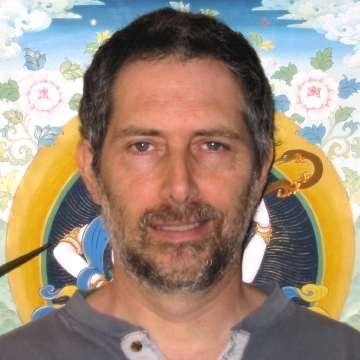Most importantly, Western therapists lack insight into their own self, family, and culture. This normal level of alienation is the heart of the Western predicament.
The Best Candidate for Addiction Therapy
"How do we help patients when in
reality we are in need of the same help we are offering?"
36
-- Eduardo Duran
It won't help if you agree with what
I've said, but it might help if you recognize and fix your own flaws.
Your best candidate for addiction therapy is yourself.
The first flaw of most professionals
is to believe what you've been taught, and to think that you know
what you're doing. The best thinkers have limited faith in what they
know, and do their best work when they leave it behind.37
Traditional healers emphasize that they are not doing the healing, it's
the energies that do the healing. Their role is simply to bring those
energies to the patient.
If you want to enhance your skill in
healing, then collect your power, sensitivity, and flexibility and seek
your demons in the land of fear and confusion. If you have trouble
finding
this place, then recollect all those things that are most important
about who you are and the life you lead and imagine permanently losing
them one by one. This is your underworld, and it's a place of
transformation.
Going there is traumatizing and I hesitate to recommend it, but knowing
its location will help you get your bearing.
Perhaps there is both good trauma and
bad trauma because journeying to the underworld can be productive when
you're prepared. Being prepared requires spiritual power, emotional
sensitivity, and flexibility. I find power comes from life experience,
while sensitivity and flexibility come from meditation and
neurofeedback.
The transformative journey does not have
to be terrifying, though it will be disturbing, confusing, and probably
dangerous. Perhaps, in the end, it's not even a choice. Perhaps your
task as an addiction therapist is not to prevent addiction, but to
enable
the addict to complete their journey through the underworld. Try it
on yourself first.
"The renegotiation of trauma is an inherently mythic-poetic-heroic journey. It is a journey that belongs to all of us" that will have moments of creative brilliance, profound learning, and periods of hard tedious work." 38
-- Peter A. Levine
Your second flaw, if you're like most
people, is that you will create this land of transformation on the
physical
plane by making real the troubles you want to avoid. We always move
toward what we focus on. In a tense situation we focus on what we want
to avoid, thereby making it more likely. If you need a lesson in this
truth, then ski through a steep, wooded slope and reflect, if you can,
on where you're placing your attention. If you're looking for insight,
don't be too attached to what you see and think.
This presentation is about neurofeedback,
and the conclusion is this: find neurofeedback training for yourself
because it can enhance your mind and your understanding of mind. Once
this occurs you will better understand addiction, and be better able
to help others understand it.
"Our inner world of emotion, intention, and awareness plays a profound role in our ability to see" yet we spend years resisting exactly what we need in order to cure our "nonexistent incurable disorders.'" self-awareness is the key to self-transformation." 39
-- Jacob Lieberman, O.D., Ph.D.




